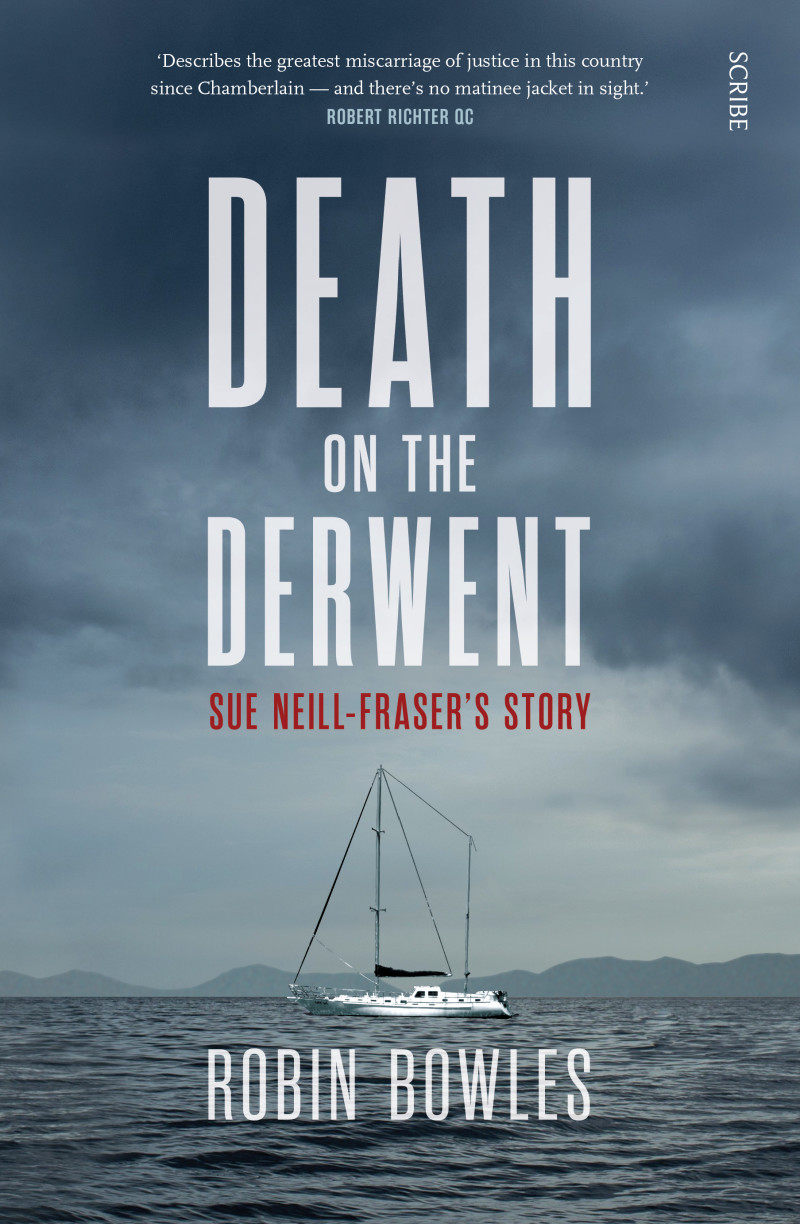Author: Robin Bowles
Publisher/Year: Scribe Publications/2019
Publisher Overview
Don’t fool yourself that the innocent never go to jail.
When Bob Chappell disappeared from his yacht, moored in the Derwent Estuary near the Royal Yacht Club of Tasmania’s marina, on the night of 26 January 2009, he left behind his pipe and tobacco — something that his partner of 18 years, Sue Neill-Fraser, knew he would never willingly do. What she didn’t know was that despite no body, no weapon, no cause of death, and no witnesses, she would soon become the only suspect in Chappell’s disappearance.
In their haste to wrap up the case, the police charged Neill-Fraser with murder. In her eagerness to assist police, she virtually talked her way into their hands. And after a lengthy trial that resulted in a guilty verdict, the judge delivered Neill-Fraser a crushing 26-year sentence.
But was the verdict unsafe? Many of Australia’s leading legal minds think so, and other reasonable hypotheses have been mooted about what might have happened on the Derwent that night. The Tasmanian government has changed its laws to give Neill-Fraser one last crack at proving her innocence, because that is what it’s come to now — proving her innocence.
The result of years of investigation, and based on extensive interviews with all the key players — including Sue Neill-Fraser and her family, local underworld figures, and legal luminaries — Death on the Derwent is a riveting story of justice not served.
Top of Form
Reviewer: Jennifer Cameron-Smith
‘The facts and rumours surrounding the event have polarised the close-knit Hobart community.’
On the night of 26 January 2009, Bob Chappell went missing from his yacht Four Winds and was never seen again. The yacht had been moored near the Royal Yacht Club of Tasmania’s marina in the Derwent River. Bob Chappell had intended to spend the night on the yacht and was found to be missing the next morning.
Bob Chappell’s body has never been found.
‘The police were investigating a murder with no body, no weapon, no witnesses and no confession.’
In 2010, Sue Neill-Fraser, his life partner of 18 years was found guilty of his murder and sentenced to 26 years imprisonment. There have been several appeals, and in March 2020 Ms Neill-Fraser gained leave for a second appeal against her conviction. This appeal has not yet been scheduled (as of 25 July 2020) because of COVID-19 restrictions.
Ms Bowles sets out the story in three parts: the disappearance of Bob Chappell; a summary of the way the case was dealt with by the legal system; and the ongoing challenging of the legal system in this case.
Before reading this book, I knew little about the Sue Neill-Fraser case. While I appreciate the amount of detail and background information that Ms Bowles has included, it took me a while to adjust to her writing style. For example, initially Ms Bowles’s referring to her connections to Tasmania, of knowing ‘who’s who in the zoo’ seemed irrelevant but I soon realised that it was part of her scene-setting, of describing the environment in which events took place. I do not necessarily share all of her conclusions (I am an expatriate Tasmanian with no establishment ties), but I think her observations are relevant.
We may never know what happened to Bob Chappell, but I am gobsmacked that Ms Neill-Fraser was convicted of murder on the case made by the prosecution. While I do not necessarily agree that:
‘When you go into court, you are putting your fate into the hands of twelve people who weren’t smart enough to get out of jury duty.’
I do have concerns about the way the case was presented and can only hope that the most recent appeal is successful. Usually, when reading books about true crimes, there is an outcome. In this case there is not. Yet. Ms Neill-Fraser is still in gaol, is still awaiting a determination of her appeal. Ms Bowles started her investigations in 2015, and when this book was published wrote:
‘So that’s it, really. My job is done. I never expected this story to cover this many years and still not have an ending.’
I finished this book dissatisfied, not with the book, but with the process surrounding Ms Neill-Fraser’s conviction. I will be extremely interested in following the appeal which hopefully will be heard later this year. The appeal hearing has been delayed by COVID-19 restrictions: Ms Neill-Fraser’s legal team are based in Melbourne.
